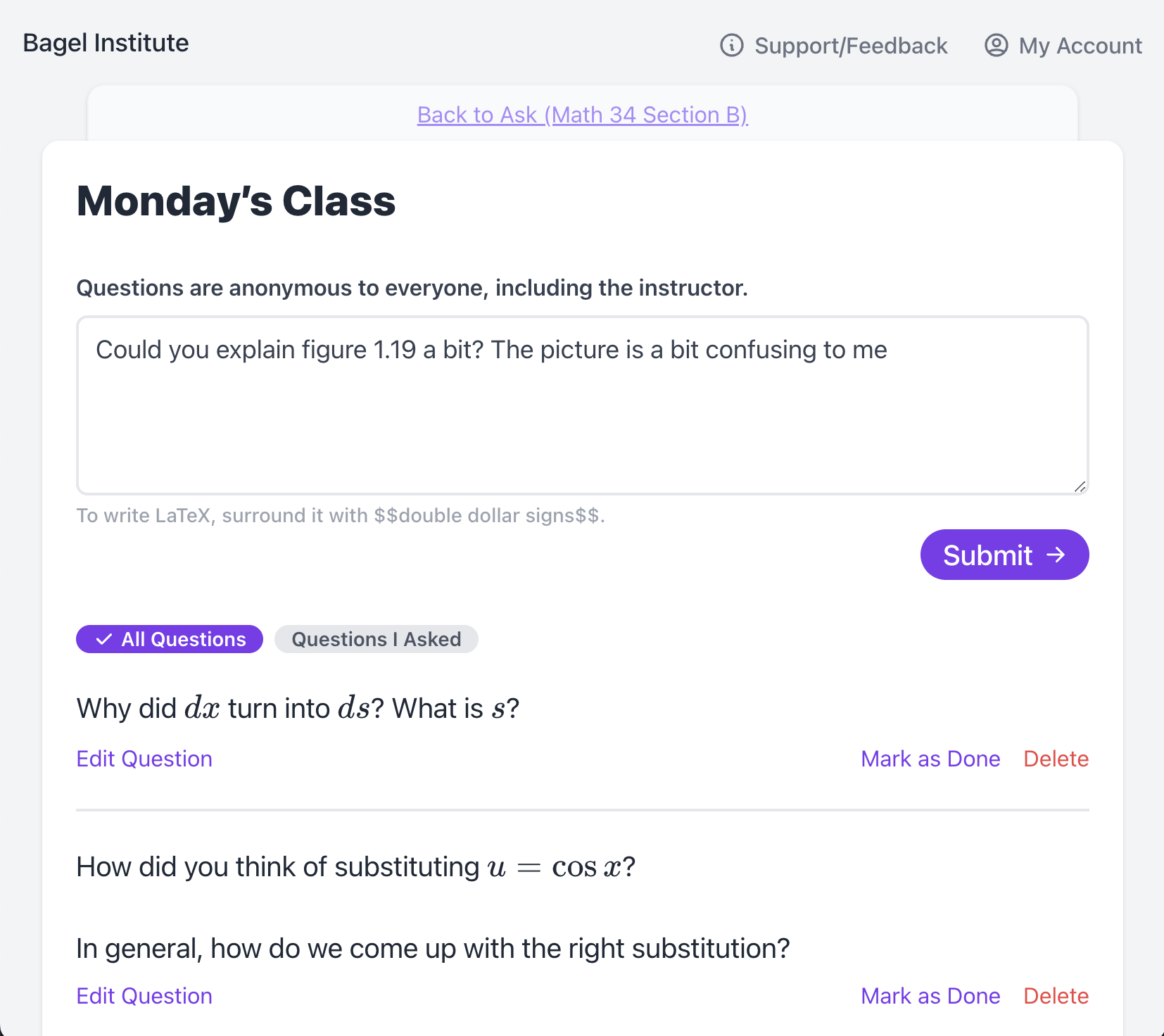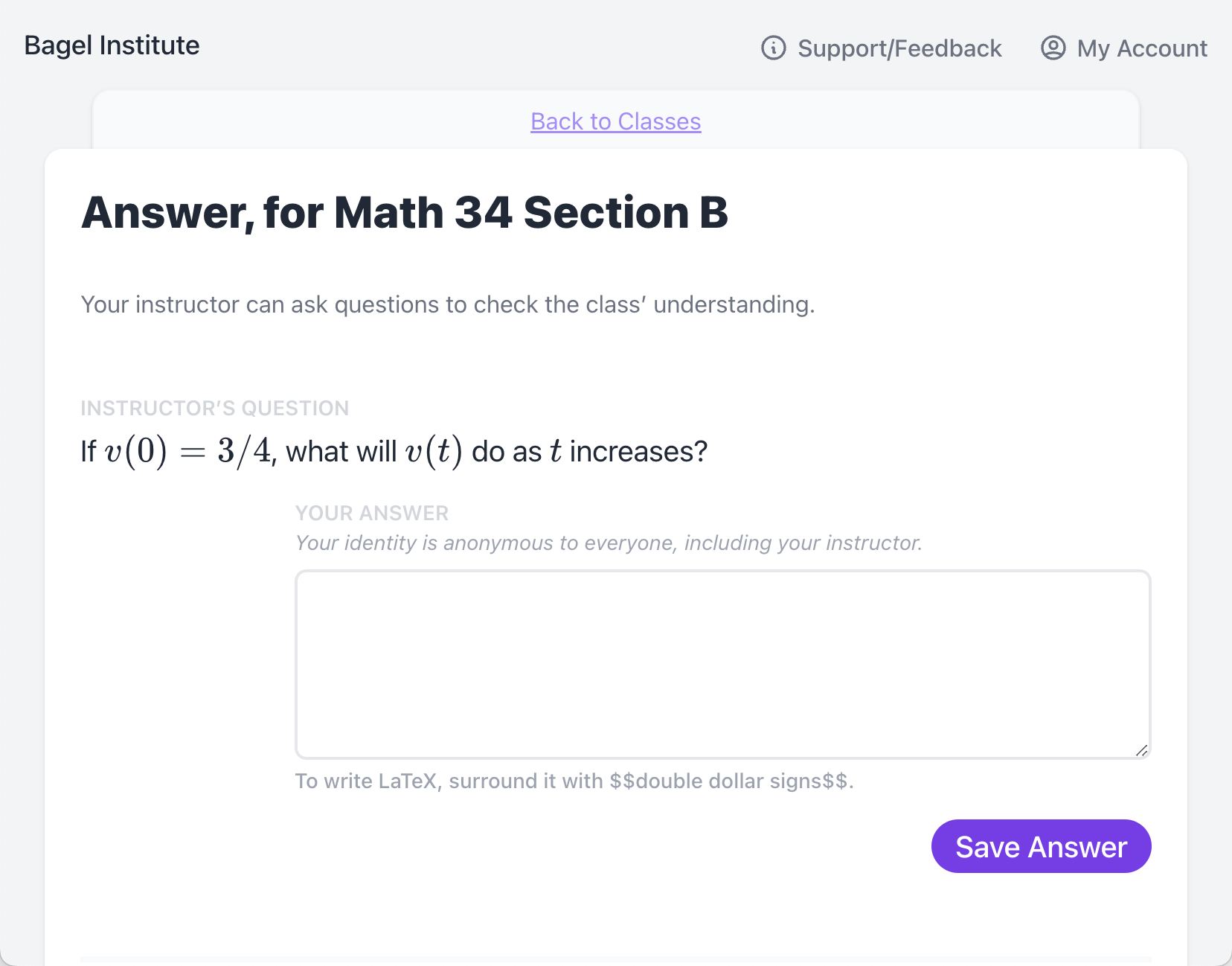Bagel Institute
Bagel Institute is an app that I built for my dad. He’s a math professor, and in the summer of 2020 we were thinking about how to incorporate the nice aspects of online teaching back into the physical classroom.
My dad was using Zoom’s whiteboard as a way of letting students ask questions. Since it was a big whiteboard, students’ questions were completely anonymous. And as a result, he got a lot more questions than before. Students didn’t feel self-conscious about asking the questions they really had.
So we came up with the idea for an app called Bagel Institute. It was named that way because bagel.institute was a valid domain, and because we wanted something unusual to emphasize that this wasn’t another convoluted Pearson product. Person would’ve called it ClassroomConnect or something.
The first thing we built was a tool called Ask. It allows students to ask their professor questions live during class. The professor can set the questions to be fully anonymous or just anonymous amongst students.

From the professor’s end, they can project a page in the classroom that shows all the live questions that students are asking.
The second tool that Bagel Institute has is called Answer. It allows the professor to ask questions that students can answer fully anonymously. (The tools are named from the student’s perspective).

You’ll notice that a core tenant of these tools is that they’re anonymous. (They can be set to show students’ names to the professor, but the app recommends to set things to fully anonymous.) Especially in undergraduate classes, my dad and I talked about how students not wanting to share in front of the entire class stops the professor from truly knowing what their students understand.
Only a couple students end up asking questions, and people only ask questions that they feel won’t make them look dumb. And when the professor asks a question to the class, they only get responses from students who understand what’s going on and end up with a false impression that everyone in the room understands.
Bagel Institute slows down teaching. It requires the professor to stop to solicit questions and responses from the class. And after collecting that information, the questions that students are asking expose areas where even more time should be spent.
But without this kind of communication, it’s easy for professors to get an overly optimistic view of what the class is understanding, and for students to feel like they don’t have a way of asking the professor their actual questions.
So far, it’s worked quite well in my dad’s classes — particularly undergraduate classes, which are bigger and have students who aren’t as confident with the field.
Lots of students’ class evaluations have even mentioned Bagel Institute as something that was helpful to them. That made me very happy.
Related posts: